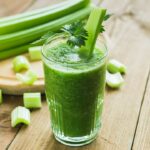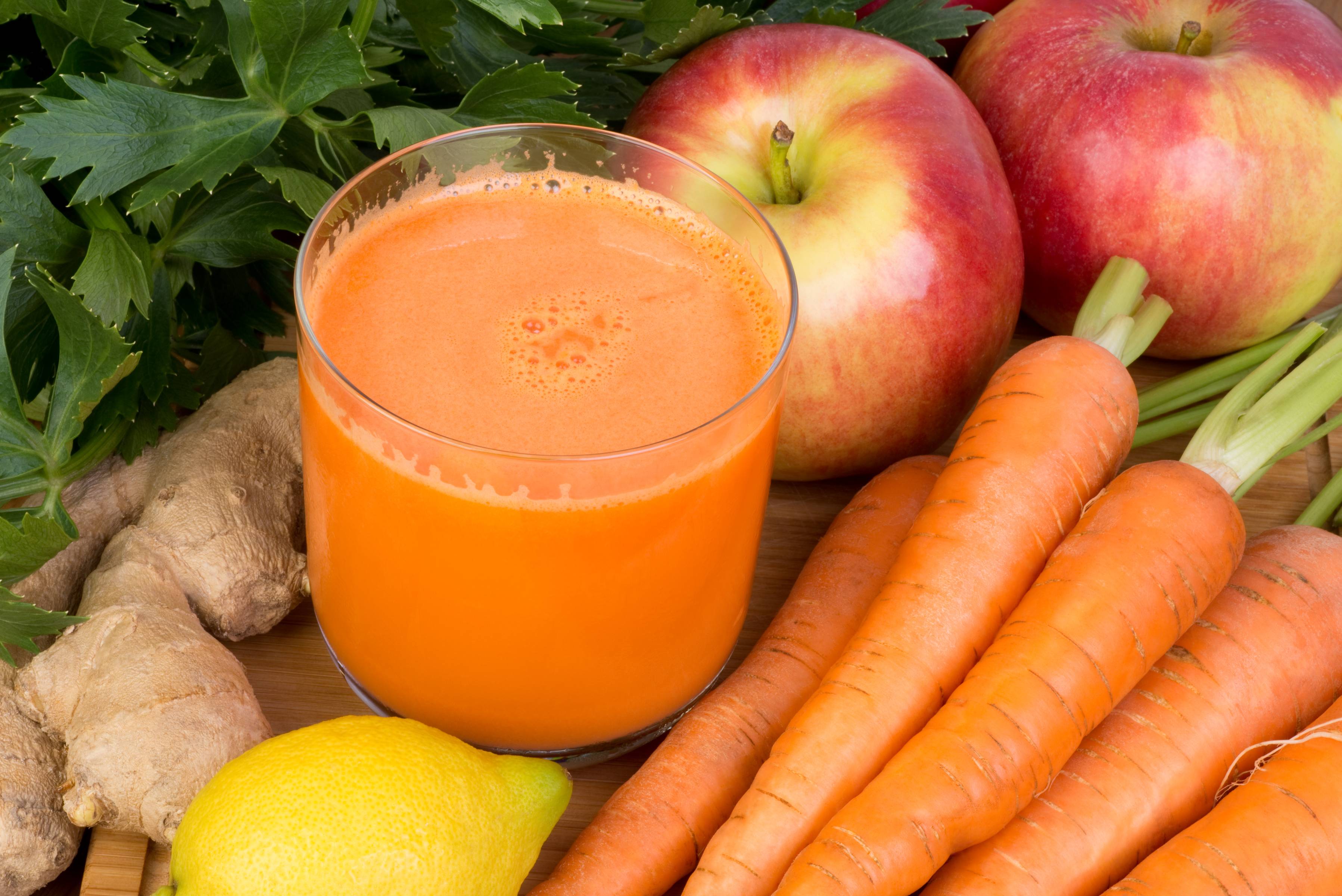Things to Consider Before Jumping on a Juice Diet

Although a juice-based diet may seem like a great way to lose weight, it is important to consider various factors before embarking on such a regimen. While these diets can be beneficial for digestive health and increasing vitamin and antioxidant intake, they may not be sustainable in the long term and could potentially have negative effects. The difficulties and risks associated with sticking to a juice-focused diet for an extended period of time can make it challenging to consistently follow through.
Fruit and vegetable juices boost levels of vitamins and antioxidants
Drinking fruit and vegetable juices is a convenient way to increase your daily intake of vitamins and antioxidants. A single glass of juice contains about one-fourth of the recommended daily intake of fruit and vegetables. In addition, drinking juice can provide as many as one-to-two servings of fruit. Some juices can contain a lot sugar so make sure you choose 100% fruit juice. This juice has the highest amount of nutrients per calorie. The most nutritious juices are orange, pomegranate and pink grapefruit juice.
Consuming juices rich in antioxidants can help protect the body from oxidative damage. In addition, the high fiber content in fruits and vegetables provides the body with an abundance of antioxidants. Antioxidants found in fruit and vegetables help fight off free radicals and protect body cells from oxidative damage. Juices are a better way to absorb nutrients and antioxidants from fruit and vegetable juices.
The main benefit of juicing fruit and vegetables is that they boost levels of antioxidants and other important nutrients. Many juice cleanses can increase vitamin C and folate levels. However, there are also some drawbacks to juice cleansing, which include nutrient deficiency and the possibility of nutrient deficiencies. Juice cleanses can cause deficiencies in vitamins and minerals, as well as a loss of protein and healthy fats.
Eating a healthy diet rich in antioxidants is an essential part of a balanced diet. It is important to remember to include a variety of fruits and vegetables and to make sure you get the recommended amounts of each. You can also take vitamin supplements as needed. If you’re unsure about whether to take a supplement, ask your doctor or a dietitian about which type is best for you.
Juicing carrots is a great way to get the most out of juice. They are rich in beta-carotene which protects against heart disease and cancer. Additionally, carrot juice contains important nutrients like iron, potassium, and natural sodium. Carrot juice is a popular beverage that many people enjoy.
They improve digestion
Juice alone may seem like a great way to cleanse your digestive tract. However, this claim is misleading. A diet that consists of whole fruit or vegetable is a better choice. Whole foods are rich in fiber which aids your body to process sugar and eliminate waste. Juices are low in fiber, so they move quickly through your digestive tract.
Juice diets are not for everyone, and the detoxification they offer can be hard on your system. To determine if you are sensitive, consult your doctor first. However, these juice diets can be effective at cleansing your system and boosting your energy.
One study found that juice diets may improve digestive function by increasing the amount of bacteria in your system. A study showed that the number and species of Bacteroides species increased after a juice-based diet. After a juice diet, the proportion of Bacteroides acidifaciens, ovatus, and xylanisolvens was significantly greater than before.
Juicing can be a great way to increase your fruit intake. However, it should not replace whole fruits. Juice diets can also lead to bacteria overpopulation in your digestive tract. This is not good for your digestive health. Juice diets can be a healthy way of eating more fruits and vegetables. Juice should not replace whole fruits because it doesn’t contain the soluble fiber that fruits and vegetables contain.
Apart from the vitamins and minerals in fruit juices, these drinks also contain soluble fibers that aid your digestion. For instance, vitamin C found in orange juice and celery juice can help you reduce your bloating and improve your digestion. These juices also contain pectin, which is a soluble fiber that can soothe an upset stomach.
Although the scientific basis for juice diets is still lacking, one study shows that a three-day juice fast can improve your body’s microbiota. It also increased serum and urine NO levels, as well as decreased a marker of lipid oxidation. Further research needs to determine if these biochemical changes lead to improved cardiovascular health.
They can have severe side effects
Juice diets can have a number of harmful side effects. They spike blood sugar, deplete muscle and can increase risk of disease. They can also expose you to dangerous pathogens. Juice diets often contain juices that have not been pasteurized. This can lead to contamination.
One of the most common side effects of juice diets is fatigue. This is due to the decreased calories and withdrawal from caffeine. Keep hydrated, drink as much water and give your body time for adjustment. You might be more irritable or have trouble concentrating.
Another side effect of juice diets is dehydration, which can lead to food-borne illnesses. Juice diets should never be the sole component of your diet. Additionally, it may negatively affect your protein and calorie intake. Therefore, juice diets should be used as a last resort, and if you must, do it in moderation.
Juice diets can cause a lot of side effects, and not everyone will experience the same ones. It is important to remember that these side effects are temporary. These changes are just part of the body’s adjustment to a new lifestyle. Although juice diets can have dramatic benefits, you should be aware that there are potential side effects and risks.
If you suffer from a sweet tooth, you should cut down on your sugar intake before beginning a juice diet. The digestive system requires regular food to function properly. Regular meals will cause your body to produce more gastric acid, which can cause bloating and discomfort. Further, a juice diet can cause extreme hunger.
They are not sustainable weight loss plans.
Juice diets are often promoted as a quick way to lose weight. However, while this type of diet can be a short-term solution, it’s not sustainable. Fasting on juices can be healthy, but a lack of proper nutrition can lead to slower weight loss than a healthy diet.
Juice is a great source of nutrition and can make an excellent addition to your diet. Juices that are low in sugar and calories will help you lose weight. Try to look for recipes that include whole fruits and vegetables. Besides, these foods have much more fiber and may help you to lose weight more effectively. Moreover, they will help you avoid food cravings and help you burn more fat.
Despite the fact that juice diets are extremely low in calories, it takes a toll on the body. The body will lose water weight and muscle mass due to a lack of nutrients. Juice cleanses can also cause headaches, fatigue, and irritability.
While juice diets can boost your self-esteem in the short-term, they’re not a sustainable way to lose weight. You should always check the nutritional value of juices and consult with a health care provider before starting a juice diet. A well-balanced diet will provide your body with the nutrients it needs to stay healthy.
The first reason juice diets are not sustainable is because they don’t provide adequate amounts of nutrients. Juices lack fat and protein. Juices contain a lot of sugar, which can cause problems with blood sugar control. Furthermore, juice is not recommended for people with eating disorders because it can encourage disordered eating patterns.

















